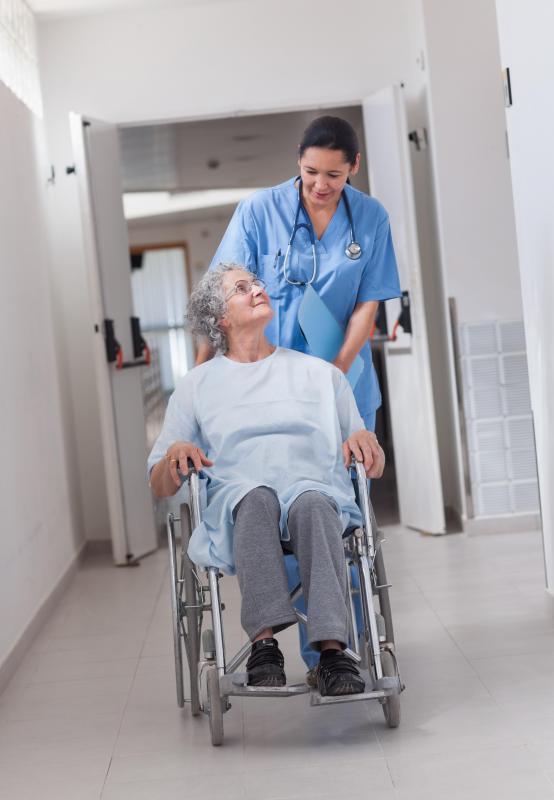At WiseGEEK, we're committed to delivering accurate, trustworthy information. Our expert-authored content is rigorously fact-checked and sourced from credible authorities. Discover how we uphold the highest standards in providing you with reliable knowledge.
What Are the Different Types of Nursing Qualifications?
Licensed practical nurses (LPNs) and registered nurses (RNs) have a number of educational, vocational, background, and licensing qualifications, depending on the country or region in which they are working. Nurses usually hold advanced degrees, with most registered nurses having 4-year education, as well as vocational training. In the US, it is necessary to pass a background check and a licensing examination. Foreign-trained professionals that are interested in nursing qualifications from the United States will have to obtain special certifications.
For educational qualification, an LPN is usually required to complete a one-year certificate program, with basic education courses. RNs typically have a four-year degree from an accredited institution, with a course load consisting of liberal courses, nursing care, and health science. Due to the difference in nursing qualifications, a registered nurse is able to supervise vocational or practical nurses.

Most registered nurses have to go through a period of vocational training at a hospital or clinic. These technical courses are done while the nursing student is still in school, usually towards the end of his or her coursework. Nurses who are interested in advanced qualifications will typically require a series of vocational training courses.
Medical professionals are often required to have a background free of serious felonies or misdemeanors. Nursing qualifications usually include being able to pass a series of extensive background checks before a nursing professional is allowed to practice medicine. A comprehensive background check can help protect employers and institutions.

Educational, vocational, and background qualifications are all prerequisites for prospective nurses to sit for licensing examinations. Some nurses will have to take follow-up examination on bi-yearly intervals to ensure their medical competency as well. In the United States, the National Council of State Boards of Nursing offers different licensing forms for LPNs and RNs. The National Council Licensure Examination-Practical Nurse and the National Council Licensure Examination-Registered Nurse are tests taken on the computer, consisting of a variety of medical questions. Tests for registered nurses tend to be more difficult, with questions focusing on patient management and delegation.

Foreign nurses who are interested in working in the United States will have to take a different licensing test, given by the Commission on Graduates of Foreign Nursing Schools. This test is internationally recognized. Prospective students who pass this test show proficiency in the English language, as well having nursing qualifications that are in line with United States practices.
AS FEATURED ON:
AS FEATURED ON:















Discuss this Article
Post your comments